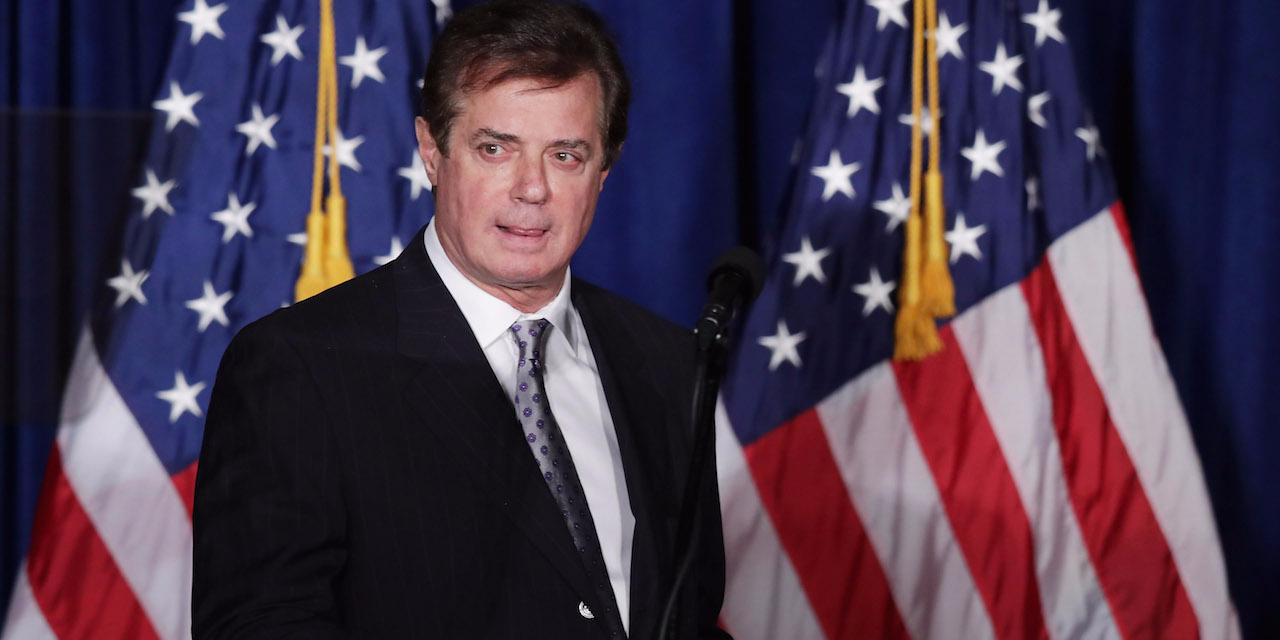- Special counsel Robert Mueller’s referral to the Manhattan US attorney’s office of information related to President Donald Trump’s personal lawyer, Michael Cohen, may pose a setback for former Trump campaign chairman Paul Manafort.
- Manafort’s defense strategy in the Russia probe consists, in part, of arguing that Mueller overstepped his mandate by charging him with crimes unrelated to Russian collusion.
- Experts said that in response, Mueller can point to the Cohen referral as proof that when he comes across information outside his purview, he hands it off to the Department of Justice instead of pursuing it himself.
The FBI’s raid on President Donald Trump’s personal lawyer’s home and office may yield some unintended consequences for former Trump campaign chairman Paul Manafort.
In a monumental development, investigators working with the US Attorney’s Office for the Southern District of New York raided Trump lawyer Michael Cohen’s property Monday morning upon receiving a referral from the special counsel Robert Mueller.
According to The New York Times, Mueller’s office made the referral after it likely uncovered evidence of potential wrongdoing related to Cohen that fell outside the special counsel’s investigative focus.
The revelation could pose an obstacle to the key pillar of Manafort’s defense strategy in the Russia probe.
The majority of the criminal charges against Manafort and his longtime associate Rick Gates relate to their lobbying work for the Ukrainian government and former Ukrainian president Viktor Yanukovych.
Gates pleaded guilty to two counts in February and became a cooperating witness in the Russia investigation.
Manafort maintains that he is innocent and has mounted an aggressive defense against Mueller.
A critical part of Manafort's legal strategy rests on the argument that Mueller overstepped the bounds of his mandate by charging Manafort with crimes that are not directly connected to Russia's interference in the 2016 US election.
In response, experts said Mueller can point to the Cohen referral as proof of how he manages information that may be outside his investigative focus.
"Mueller obviously came across something [on Cohen] and determined it wasn't within the scope of his mandate," said Jeffrey Cramer, a former federal prosecutor who spent 12 years at the Department of Justice. "Keeping in mind that Manafort has a motion going right now that Mueller is overstepping his bounds, this Cohen referral is a great argument for Mueller."
"Mueller can now say: 'I'm not violating my mandate. When I come across something outside my purview, I hand it off,'" he added.
Andrew Wright, who served as an associate in the White House counsel's office under President Barack Obama, agreed.
"Mueller's referral of matters related to extramarital affair hush money does lend credibility to Mueller's argument he is staying in his lane" and is "referring out matters beyond his core mission," Wright said.
The Manhattan US attorney's office is said to be investigating Cohen for possible bank fraud, wire fraud, and violations of election law, The Washington Post reported. The criminal investigation into Cohen deals, in part, with payments made to two women, the adult film star Stephanie Clifford and the former Playboy model Karen McDougal, both of whom claim to have had an affair with Trump.
When they raided Cohen's property, FBI agents reportedly also sought records related to a 2005 "Access Hollywood" tape Trump is featured in as part of an effort to determine whether Cohen tried to quash damaging information about the president.
Manafort's 'factually weak' defense

Trump often rails against the Russia investigation, calling it a "hoax" and a politically motivated "witch hunt." But the Cohen raid appears to have elicited an unprecedented level of fury from the president.
His anger ratcheted up another notch when it surfaced on Tuesday that deputy attorney general Rod Rosenstein personally greenlit the FBI's decision to raid Cohen's home and office. Since finding out about the operation, Trump has reportedly fumed in private to his advisers and mused about firing Rosenstein, who he believes is not doing enough to shield him from Mueller.
"Trump is having a hard time delegitimizing the Cohen raid because it wasn't conducted by the Mueller team - it was pursued by career prosecutors in the Southern District of New York," said Jens David Ohlin, a vice dean at Cornell Law School who is an expert in criminal law.
"And a similar point applies to the Manafort case ... those charges were signed off on by career prosecutors as well, so that even if the Mueller investigation is shut down, the mainline prosecutors would pick up the case," he added.
In addition to arguing that Mueller breached his mandate, Manafort's attorneys have argued that the special counsel's mandate itself is too broad and amounts to a carte blanche.
Wright described Manafort's argument as "factually weak."
"If you are investigating suspicions that someone is a Russian sleeper agent or acting under the influence of Russian intelligence, you are going to probe that person's history with Russia and Russian-affiliated persons all the way back to the beginning, whatever the current controversy," he said.
When he appointed Mueller as special counsel last year, Rosenstein authorized him not only to investigate "any links and/or coordination between the Russian government and individuals associated" with Trump's campaign, but also to examine "any matters that arose or may arise directly from the investigation."
Legal experts have long said Mueller's mandate allows him to investigate Manafort's activities in Ukraine. Rosenstein also wrote a memo to Mueller last year which specifically authorized him to investigate allegations related to Manafort's lobbying work in Ukraine. The Cohen referral could serve to further bolster the special counsel's case.
"I can't imagine Manafort wins on a 'Ukraine is not Russia' or 'conduct before the campaign,'" Wright said. "It fails as a matter of facts, which then makes it fail as a legal argument."

